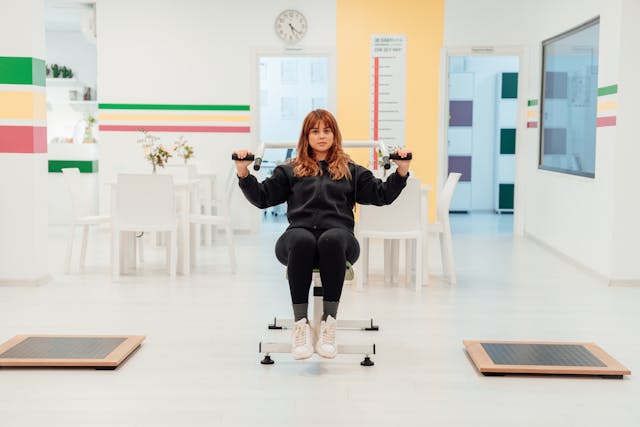|
|
Every person in recovery has a unique story. Some come to treatment after years of substance use. Others are taking their first brave steps toward healing. Recovery isn’t one-size-fits-all—and it shouldn’t be.
That’s why leading recovery centres design personalised outpatient and aftercare programs to meet the specific needs of each client. By understanding a client’s history, strengths, challenges, and goals, treatment providers can offer the right support at the right time.
This article explores how outpatient care and aftercare are tailored to fit the individual—because personalised treatment often leads to stronger, longer-lasting recovery.

Why Personalisation Matters in Recovery
Substance use affects everyone differently. A 25-year-old with co-occurring anxiety and binge drinking issues will need different support than a 50-year-old managing chronic pain and prescription medication dependence.
Research backs this up. According to the National Institute on Drug Abuse (NIDA), individualised treatment plans are more effective in promoting long-term recovery and reducing relapse rates [1].
When care is customised, people are more likely to stay engaged, feel understood, and build trust in the process.
Starting with a Comprehensive Assessment
Customisation begins with a thorough intake assessment. Recovery centres look at several key areas:
- Substance use history (duration, severity, triggers)
- Mental health status (diagnoses, trauma, emotional health)
- Physical health concerns
- Family dynamics and support systems
- Work, school, or caregiving responsibilities
- Cultural background and spiritual beliefs
This detailed picture helps treatment teams design a plan that fits both the clinical needs and the real-life responsibilities of the client.
Flexible Outpatient Options
Outpatient treatment allows clients to live at home while attending regular therapy sessions, medical checkups, or group programs. Recovery centres offer multiple levels of care to fit the client’s schedule and support needs.
1. Standard Outpatient Program (OP)
- Ideal for people with mild addiction or those stepping down from more intensive care.
- Typically includes 1–3 sessions per week.
- Focus on relapse prevention, coping skills, and maintaining sobriety.
2. Intensive Outpatient Program (IOP)
- Ideal for people with mild addiction or those stepping down from more intensive care.
- Typically includes 1–3 sessions per week.
- Focus on relapse prevention, coping skills, and maintaining sobriety.
- A step above OP in intensity and structure.
- Usually involves 9–15 hours per week of therapy, groups, and individual counselling.
- Helps clients balance treatment with work or family life.
- Especially helpful for clients needing more accountability without full-time care.
3. Partial Hospitalisation Program (PHP)
- Highest level of outpatient care.
- Offers 20+ hours per week, often in a day treatment format.
- Ideal for clients who need medical monitoring or crisis stabilisation but still want to return home each night.
Clients can move between levels based on progress and evolving needs.
Culturally and Gender-Sensitive Care
Recovery centres also customise care to respect a client’s identity and background. This might include:
- Women-only groups or LGBTQ+ safe spaces
- Support for parenting or pregnancy during recovery
- Culturally aligned therapists and support groups
- Faith-based counselling for those who find strength in spirituality
When clients feel safe and represented, they’re more likely to open up—and that leads to deeper healing.
Customising Aftercare Plans
Once outpatient treatment ends, aftercare begins. This next phase helps people stay grounded in their recovery as they face real-world challenges. A solid aftercare plan reduces the risk of relapse and boosts confidence.
According to SAMHSA, aftercare participation significantly lowers relapse risk, especially in the first six months after treatment [2].
Common Aftercare Tools and Customisations:
1. Recovery Coaching
Some clients benefit from weekly check-ins with a recovery coach—someone who offers motivation, goal-setting, and real-life advice.
2. Ongoing Therapy
Therapists can tailor sessions to focus on lingering issues like trauma, depression, or relationship stress.
3. Peer Support Groups
Clients may be referred to 12-step programs, SMART Recovery, or gender-specific peer groups based on their comfort level and belief system.
4. Medication-Assisted Treatment (MAT)
For some, MAT continues into aftercare. A treatment team monitors medications like Suboxone or Vivitrol to manage cravings safely.
5. Sober Living Placement
Some clients thrive with extra structure. A sober living home offers drug-free housing, peer support, and accountability for those easing back into independence.
Client Voices in Treatment Planning
Personalised care isn’t just something providers do for clients—it’s something they do with them. Recovery centres increasingly include client input in all decisions. A good care team will ask:
- What are your goals in the next 30 days?
- What support has helped you most so far?
- Are there any barriers we need to address?
By giving clients a voice, treatment becomes a collaboration, not a prescription.
Real-Life Example: Customisation in Action
Let’s say Maria, a single mother of two, enters outpatient rehab for alcohol use. During her intake, the care team learns that she has trauma history, works part-time, and needs evening sessions to keep up with childcare.
Here’s how her customised plan might look:
- Enrol in an IOP with evening hours three days a week.
- Trauma-informed individual therapy.
- Connect with a women-only peer support group.
- Include virtual check-ins with a counsellor for days she can’t attend in person.
- Aftercare plan with parenting resources, job coaching, and continuing therapy.
This is the power of tailored recovery—it meets Maria where she is and walks with her toward lasting change.
Final Thoughts
Outpatient treatment and aftercare aren’t cookie-cutter programs. When recovery centres customise care, they respect the fact that every journey is different. Personalised support helps clients build healthier lives, avoid relapse, and stay on track—on their terms.
Whether someone needs evening sessions, trauma-focused therapy, faith-based guidance, or parenting support, there’s a path that fits. Recovery is personal—and that’s exactly how it should be.

